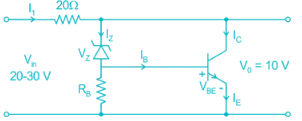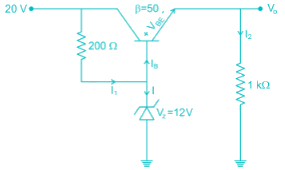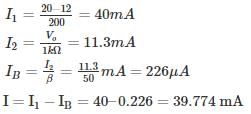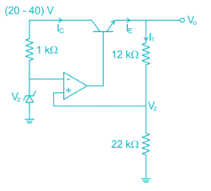Analog Electronics - 8 - Electronics and Communication Engineering (ECE) MCQ
10 Questions MCQ Test - Analog Electronics - 8
In the above monostable multivibrator circuit above given C = 10 nF. If the frequency of output pulse is 100 kHz the resistor value is _________ kΩ
A dc voltage of 380 V with a peak ripple voltage not exceeding 7 V is required to supply a 500 Ω load. Find out the inductance required.
A shunt regular is shown in the figure has a regulated output voltage of 10 V. Given Vz = 9.3, VBE = 0 .7 V, β = 49. Neglecting the current through Resistor RB the ratio of maximum power dissipated in the transistor to the maximum power dissipated in the Zener diode is ________
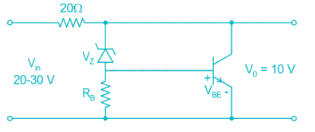
For the circuit shown, the value of C = 1 nF, the value of RA & RB such that oscillation frequency of 100 kHz and duty cycle frequency of 75% is obtained at the output is
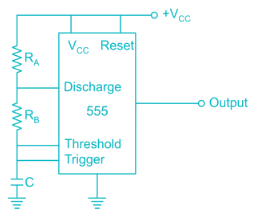
The frequency of oscillation of the astable multivibrator circuit given below is ______
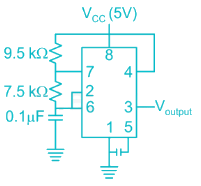
For the given circuit, what is the value of power dissipated in zener diode ?
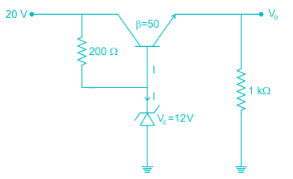
The output voltage of the voltage regulator is constant at 18.5 V. Assuming the op-amp and Zener diode are ideal, the maximum power dissipated in the transistor is ______ mw. The transistor β is very high.
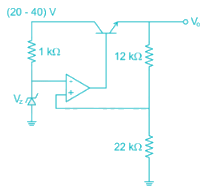
For the timer circuit shown below the frequency of oscillation is __________ kHz.
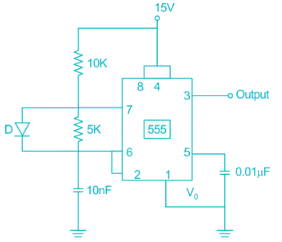


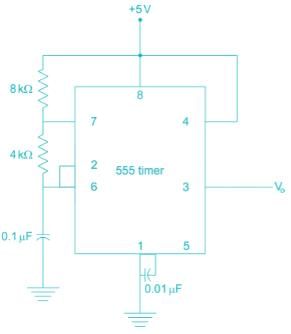
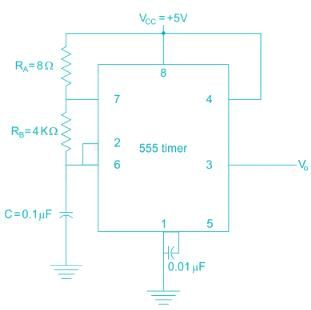
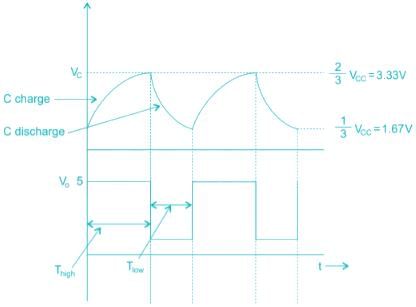





 ≃ 66% > 50%
≃ 66% > 50%

